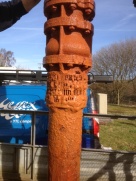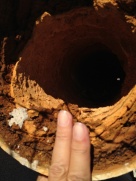Water and sewage-treatment company Wessex water, serving an area of the south-west of England, talks us through its groundwater management programme and rehabilitation efforts. Around half of Wessex’s region is classed as an area of outstanding natural beauty and with 75% of its water supplied through groundwater Wessex is very precious about its boreholes and how it manages them. They implemented a comprehensive borehole management system some years ago and every year refine the review process to ensure maximum efficiency but with minimum environmental impact.
This article describes Wessex’s problems with iron contamination and the borehole remediation work it has been doing with BoreSaver and Geoquip Water Solutions over the last four years.
In recent years there has been significant reorganisation in the Italian water sector to conform to the rules set out in the European Union Water Directive. Pollution control and the supply of clean water continues to be an important issue for the Italian government. This article looks at the work of Millars Products and Geoquip Water Solutions in helping Italian companies manage their supply of clean water including projects using hydraulic barriers and geothermal installations.
Mike Deed considers the problems of groundwater asset management in the January 2014 issue of WaterActive. Groundwater boreholes are a key component for commercial operations where large volumes of water are required, as part of the manufacturing process, to service buildings, for agricultural or irrigation purposes. For manufacturers like Yuasa Batteries and world famous sporting venue Aintree Racecourse, high levels of operational efficiency and service availability must be achieved all year round. Mike explains how both companies have improved their specific capacity and operational efficiency through implementing a borehole management programme and using BoreSaver treatments.
Mike Deed discusses the benefits of preventative maintenance of boreholes, now acknowledged as the best way forward in order to control mineral and bacterial contamination in groundwater. Mineral contamination or residue build up in water well systems can have significant operational implications for every business that relies on an efficient and effective water supply. Encrustation and clogging resulting from contamination can lead to a reduction in the yield and bore capacity as well as increased breakdown of equipment. Where there is a need for continual flow, this can also impact on the implementation of scheduled bore and pump maintenance programmes which, if not properly planned, can become limited to a breakdown only basis; consequently underlying but significant contamination problem can fail to be addressed.
Mineral contamination, particularly iron oxide encrustations and iron bacteria, can seriously affect the performance of wells and boreholes. Iron is one of the most common elements found in nature, accounts for at least 5% of the earth's crust and most groundwater contains a certain concentration of dissolved iron. Click 'see article' button to continue reading...



